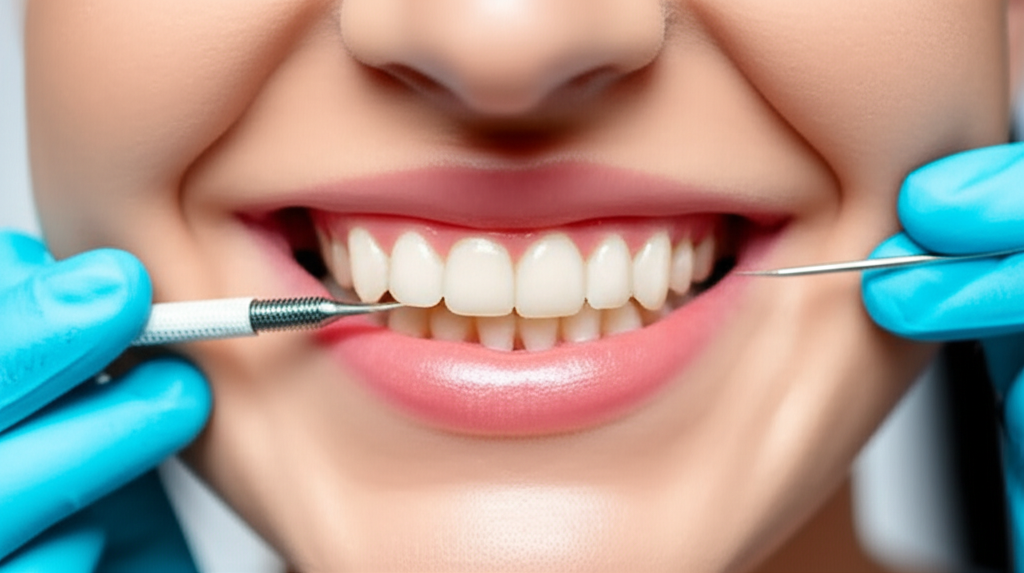Physical Address
304 North Cardinal St.
Dorchester Center, MA 02124
Physical Address
304 North Cardinal St.
Dorchester Center, MA 02124

That strange ache in your jaw. Gums that bleed and don’t seem to stop. A mouth that’s always dry lately. If you have a heart problem, you might wonder, “Can heart problems hurt my teeth, or is it just a random thing?” You’re not the only one thinking about it. Many people don’t realize how closely their heart health and their mouth are tied together. Let’s break down the facts, the risks, and what you can do to protect both your smile and your heart.
Short answer: Yes, heart problems can hurt your teeth—and not taking care of your teeth can hurt your heart, too.
This link surprises a lot of people. But studies show it’s real and matters. Taking care of your teeth isn’t just about fewer cavities and fresh breath—it can also help lower your risk of heart problems. And some heart medicines and problems can make it more likely you’ll have mouth troubles.
Let’s see how this works and what you can do.
Think of your mouth as a doorway to the rest of your body. When you have heart trouble, that doorway gets harder to keep healthy. Here’s why:
1. Medicine Side Effects
A lot of heart medicines—like water pills, beta-blockers, ACE inhibitors, and calcium channel blockers—can give you dry mouth, puffy gums, or make you bleed more easily.
2. Weaker Immune System
Heart problems over time can lower how well your body fights infection. So, even a small gum problem can turn serious fast—or even become dangerous.
3. Changes in Eating
If you’re on a diet to help your heart, you might skip crunchy fruits and veggies—the stuff that helps clean your teeth. Some foods that are good for your heart are hard or sticky, which can make new problems for your mouth.
It’s not just one way; your mouth health can really affect your heart.
1. Sore, Swollen Gums Feed Heart Troubles
Bad gum disease (periodontitis) doesn’t just stay in your mouth. It can cause swelling in the whole body, raising signs (like CRP) linked with heart attacks and strokes. Swelling is your body’s way of calling for help—if it starts in your gums, it still sends signals everywhere.
2. Sneaky Germs Get Into Your Blood
Brushing, flossing, or dental work can let germs from your gums go into your blood. If these germs stick to a hurt part of your heart, they can cause infections like endocarditis—a rare but scary infection that’s tough to treat.
3. Shared Bad Habits
Do you smoke, have diabetes, or feel stressed a lot? These things make both gum problems and heart problems worse—giving you double trouble.
Some mouth problems happen more often—or get worse—if you have a heart problem, take heart medicines, or both.
This is the big problem when it comes to heart and mouth links. People with gum disease are 2-3 times more likely to have heart disease or stroke.
Signs to look for:
If you have fake heart valves, were born with heart problems, or had a heart infection before, even a regular cleaning can let germs into your blood. This can cause a serious infection inside your heart.
Some medicines for your heart cause dry mouth, which gets rid of the spit that washes away “bad” germs. This means more cavities, more dental work, and possibly tooth loss.
Some blood pressure pills can make your gums grow over your teeth. This makes brushing and flossing tricky, and sometimes needs a little surgery if cleaning alone doesn’t fix it.
Funny enough, sometimes a heart attack can make your jaw or teeth hurt, even if your mouth looks fine. If you have new, strange tooth pain—especially with chest pain—call your doctor or 911 right away.
Worried your mouth might hurt your heart or your heart might hurt your mouth? Here’s the good news—taking care of one helps the other, too. Here’s what you can do:
Make Brushing and Flossing a Must
Don’t Skip Dental Visits
Get Your Doctors Talking
Live the Heart-Healthy Life
Special Steps If You’re High Risk
Don’t wait if you have:
If you have a heart issue and need dental work, always ask: “Is there anything special I should do before this?”
Still have questions? Don’t worry. Write down your problems or questions, talk to your dentist, and stay in touch with your heart doctor. Your smile and your heart will both be glad you did.
Sources: American Heart Association, American Dental Association, Journals: Circulation, Journal of Periodontology, Case Reports in Cardiology.
For more info about dental care choices, check out our guides on digital dental lab options and why picking a good crown and bridge lab matters.
Remember: Small, regular steps now can make a healthier you—inside and out.